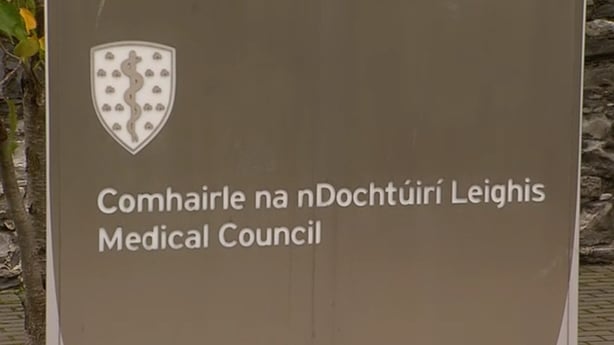A doctor is facing allegations that he made inappropriate remarks of a sexual nature to a patient and squeezed and touched her at a clinic in 2014.
The doctor is facing allegations of professional misconduct and/or poor professional performance at a fitness to practise inquiry at the Medical Council.
The inquiry agreed to an application from lawyers for the Medical Council chief executive that the patient not be identified.
It also accepted an application from lawyers for the doctor that he not be identified. The clinic is also not being identified.
It is alleged that on 4 June 2014, while working at a clinic providing care to a patient, he made one or more remarks of an inappropriate and/or sexual nature to the patient.
It is further alleged he squeezed, rubbed or touched the patient's arm, in circumstances where this was not clinically justified and that he also touched her shoulder.
It is also alleged that he failed to treat the patient with due dignity and respect.
Lawyers for Dr 'A' told the inquiry he had no recollection of saying such things as alleged, but he was not questioning the veracity of the patient's claims.
Dr A was happy to accept as fact that he said the words with regards to the allegation of remarks he made on 4 June.
Dr A does not accept the allegations regarding touching the patient and said he touched the patient’s arm to check a lesion.
He said that if he accidentally brushed against her, he apologised. He also said he did not stare at the patient in a creepy or perverted manner.
Dr A also said he has never been the subject of a complaint to the council before.
The inquiry heard the female patient, who is in her late 20s, suffered from mood swings, had previously self-harmed and had previous aggressive behaviour.
It also heard Dr A qualified from Trinity College Dublin and has practiced in Ireland and the UK.
Barrister Eoghan O'Sullivan for the Medical Council told the inquiry that at one stage during the consultation the patient thought she might be in a hidden camera TV show, such was the unusual nature of the consultation.
The patient has told the inquiry she felt the physical contact by Dr A on 4 June 2014 was unnecessary, a bit invasive and unwelcome.
She said when she first met Dr A he made an unusual sound and he also explained he had a black belt in martial arts.
Dr A had squeezed her shoulders.
She told the inquiry she was not an overly sensitive person but the consultation had really tested her.
She said her history of aggression only related to little things.
She said she had never had an issue with a doctor before and made the complaint about Dr A to the Medical Council.
She said she went for cognitive behavioral therapy at a later stage and the diagnosis made then bore no resemblance to hypomania, as suggested or referenced by Dr A.

Expert witness Dr Ide Delargy from the Irish College of GPs, told the inquiry the matters raised by Dr A at the consultation were inappropriate, serious and professional misconduct.
She said the matters of a sexual nature raised by Dr A had no relevance to the presenting complaint.
She also said that touching a patient in an inappropriate manner has no role in a clinical examination.
Dr Delargy said that in this case there was no reason to squeeze, rub or touch the patient and that in her view, Dr A had seriously fallen short of the standards of conduct expected among doctors.
Barrister Cathal Murphy, for Dr A, told the inquiry a medical assessment of his client had found that he displays certain autistic traits, which affect his communication skills and is prone to delivering monologues on things he is interested in.
He said Dr A displays a lack of attention to conversational cues and those on the receiving end may find these things inappropriate.
Barrister Eoghan O'Sullivan for the Medical Council said Dr A may benefit from communications training.
In direct evidence, Dr A told the inquiry that the events were four years ago and his memory was sketchy, that he was working as a GP in the clinic at the time and had no recollection of the things alleged.
Dr A said his impression from the patient was that she had mood swings and alternating depression and aggression.
He said he was not a psychiatrist but arrived at a working diagnosis of hypomania.
He suggested she see an expert.
Dr A said he had no idea why he would or should have touched the patient's back and he had no memory of it.
He also said he could have put a hand on her shoulder, to examine her neck.
In relation to remarks to the patient of a sexual nature, Dr A said it was not his normal vocabulary.
He has accepted at the inquiry that he made comments of an inappropriate and of a sexual nature to the patient.
He told the inquiry he had difficulty answering questions on the issue and was confused as to how it had arisen.
Dr A said that until the complaint came in, the only time he had heard the word sex was from a patient ten years ago.
He said he was dreadfully sorry if he did make the remarks and would improve his communications.
The inquiry has adjourned until tomorrow.






